![LG Display staff is introducing 'Pillar to Pillar (P2P)', a display solution for large vehicles (Courtesy of LG Display). © News1]](https://contents-cdn.viewus.co.kr/image/2025/07/CP-2023-0309/31131479.jpg)
Nature’s transformations unfold in their own time, concealed within cocoons and eggshells. When the moment arrives, a breathtaking butterfly or an adorable hatchling emerges, ready to take flight. Even a newly hatched chick, not yet capable of soaring, imparts pure joy and wonder to those fortunate enough to witness its arrival.
Yet herein lies the conundrum: some individuals choose to remain ensconced in their cocoons forever, thereby missing out on life’s extraordinary transformations. They may be trapped in a rigid shell of self-centeredness, obstinacy, or antiquated beliefs. Others find their comfort zones so inviting that they cannot bear to leave. It is as if they are under an enchantment—trapped in their own secluded world without even realizing it.
In her thought-provoking poem “Life in an Egg,” Kim Seung-hee draws a clever parallel between modern life and eggs stored in a refrigerator. Admittedly, it is cool and comfortable in there, much like our air-conditioned sanctuaries. However, those refrigerated eggs have lost all hope of hatching into something remarkable. Does this sound familiar? Many of us are ensnared in a similar rut, oblivious to our potential for growth and change.
Kim’s incisive critique targets those who choose to live in isolation, wrapped up in their own little worlds and disconnected from others. Consider Korea, for instance, where many reside in soulless apartment blocks that resemble chicken coops more than genuine homes. Isolated from their neighbors—and as the saying goes, eggs laid in a chicken coop stand no chance of hatching—people, nestled within their climate-controlled bubbles, become self-absorbed and unaware of the world beyond their front doors.
Thomas Pynchon’s short story “Entropy” offers a similar admonition. We are living in a cozy hothouse, so comfortable that we become indifferent to the events unfolding on the streets outside. Yet Pynchon perceives danger in this overly sheltered existence—a closed environment where stagnation and decay take root.
When Henry Miller returned to America after years abroad, he embarked on a cross-country journey to rediscover his homeland. His verdict? America had become an “air-conditioned nightmare” and a “cancer of sameness.” You might ask, “Isn’t America synonymous with diversity?” Well, the answer is both yes and no.
The fact remains: wherever one travels in the States, one is confronted with identical cookie-cutter malls, department stores, chain restaurants, and gas stations. Japanese author Haruki Murakami experienced a similarly eerie sensation in California, noting, “It was terrifying to find the same thing everywhere in America.”
In her novel “Angels and Insects,” A.S. Byatt draws an intriguing parallel between insects and human beings. She suggests that some people remain perpetually akin to caterpillars, never emerging from their cocoons. Others, however, manage to transform into beautiful butterflies. Yet, let us be candid—metamorphosis is no leisurely stroll. Anyone who has observed a caterpillar’s painstaking transformation into a butterfly knows it is a grueling process requiring patience, determination, and perseverance.
Kim Seung-hee understands that transformation can be a painful journey. Nevertheless, her poems encourage us to continue dreaming of that breakthrough moment. She employs the image of a pearl to illustrate this idea: only a wounded oyster can produce something so breathtakingly beautiful. Though breaking free from our comfort zones may cause pain, it is the sole path to spreading our wings and rising toward a brighter future.
In the preface to her poetry collection “Life in an Egg,” Kim pens these evocative lines:
“Situated between these two horizons, / what have I awaited for, for such a long time? / Crouching inside an egg, / what kind of dream have I dreamt? / Neighbors, you and I may be the eggs / trapped inside the refrigerator, / still dreaming of hatching, / still dreaming of love. / Are we, then, not the nameless heroes / in a melancholic epic?”
Indeed, metamorphosis can be a painful journey, leaving us vulnerable and exposed. Yet it is a necessary step if we wish to transform into our own version of Pegasus, soaring above the unsightly realities that seek to confine us.
Kim Seong-kon
Kim Seong-kon is a professor emeritus of English at Seoul National University and a visiting scholar at Dartmouth College. The views expressed here are his own. — Ed.


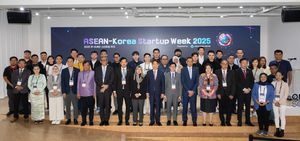
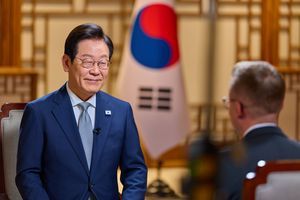
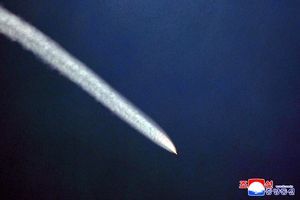
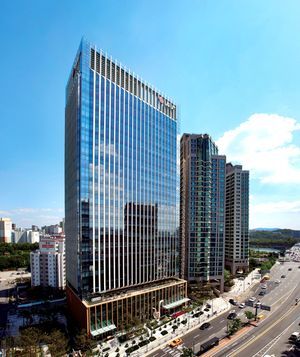
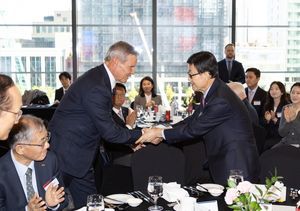
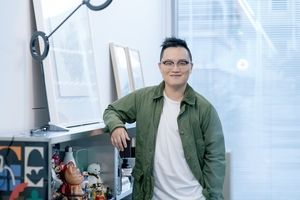


Most Commented